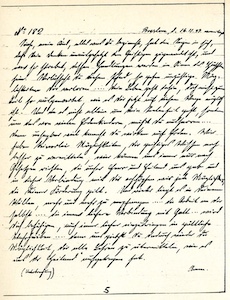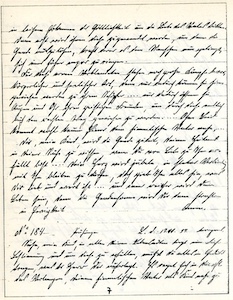By submitting your will to the divine will you give up your spiritual resistance against God and you recognize and confess that you belong to Him. Thus the purpose and goal of earthly life is that you finally return to God and despise God's adversary. However, in order to recognize that you belong to God you must first be given the knowledge about Him and His activity as well as about the nature of God's adversary. You must learn to recognize the effect of the forces of both powers in order to then be able to decide in favour of one of the two powers. However, as soon as one power prevents you from recognizing the effect of the other power, you can no longer speak of a decision. But this is what the adversary is planning in order to increase his power. He takes action against God Himself, he tries to influence people's thinking in such a way that they doubt the eternal deity, that they are inclined to believe in a coincidental emergence of creation without the will and the unfolding of strength of a higher power. The ability to recognize God is therefore prevented; a power takes possession of you unlawfully; it takes what it fears to lose as soon as free will decides. This battle is unlawful and the effect on the human being is tremendously detrimental. Man would therefore be the one to suffer if God did not want to come to his aid. He must try to strengthen faith in Him and His strength to the same extent as the adversary wants to weaken it and awaken it where the latter has already undermined it.... And God does this in such a way that He chooses people who are firm in faith and have the will to serve Him.... that He gives them a task which signifies a counter-work for the adversary.... that He builds up what the latter destroys.... God allows these people to find contact with people who are in danger of succumbing to God's adversary. They now counter them with arguments which seem worthy of consideration to them, and through reflection people now come closer to the essence of the deity. The greatest danger has been removed that the eternal deity will be completely rejected. But now the adversary has another weapon, which he also uses without hesitation.... He touches the divinity of Jesus, he tries to take away people's faith in the saviour and thereby put them in a powerless state.... Man cannot grasp the significance of this endeavour as long as he does not understand the significance of the work of redemption....
He will only come to a clear realization when the guilt of sin has been eradicated, for sin and darkness belong together, and brightness of spirit and purity of heart cannot be thought of without each other either. A being born of sin (which has arisen through the will of a power opposed to God) must first be purified before it is admitted to the light, i.e. to closeness to God. Purification of the heart, however, is equal to the forgiveness of the guilt of sin; the stain of guilt is removed from the being. However, this first requires full acceptance of the guilt, because only when a guilt is recognized as such does the will to be free of this guilt awaken. The latter is a redemption of the unfree, which requires immense willpower, since the human being cannot even measure the extent of his guilt, which the being has brought upon itself through the apostasy from God. And it would take endless times before a being had paid off its heavy debt to God; redemption would require (often infinite) endless times, for it is not the sins which the human being committed in earthly life which have to be atoned for, but the open rebellion against God was the actual sin. But this sin is immense, it cannot be grasped by the human mind. The incomprehensible magnitude of guilt moved Jesus Christ to His work of redemption.... In His love, the God-man Jesus recognized the pitiful state of humanity and wanted to take it upon Himself.... He wanted to suffer for people in order to spare them the great suffering of atoning for their debts.... He wanted to tolerate pain in order to reduce their pain. He wanted to restore people's fullest freedom of will, He wanted to redeem them from the agonizing state of a sinner before God.... And so Jesus Christ took the guilt of all people upon Himself and offered God the sacrifice on the cross as atonement.... He gave Himself out of love for humanity, which without this sacrifice the rebellion against God would never have been able to atone for this guilt of its former rebellion against God itself. Only when man is able to recognize God will he be able to appreciate the love that moved the God-man Jesus to lay down His life for people on earth.... He cannot grasp it on earth, but he should not reject the greatest work of love, even if he cannot yet appreciate its greatness....
(16.9.1941) It was the work of the greatest love for fellow human beings.... No being before and after has taken such a sacrifice upon himself, no one has carried out such an act, which completely originated from free will, which he also could have averted by virtue of his will. Yet His love for His fellow human beings was so strong that He was in intimate union with God precisely through this love, Who is love Himself.... that the deity was able to take abode in Him in all its fullness without, however, consuming the human body, which is otherwise the consequence of the intimate union with God. But the body still wanted to suffer for the sake of sinful humanity.... He wanted to atone for this.... In His wisdom, which was the result of His deepest love, Jesus recognized the spiritual low of mankind and also knew of its consequences. However, this was so serious, so extremely painful, that He took pity on it and wanted to compensate for people's lack of love through His immense love. Only the will to help them in their greatest need determined His actions. He was driven by love, which was indeed divine, but the man Jesus took the suffering of the death on the cross upon Himself and drank the cup of suffering to the brim.... He suffered unspeakably and died an agonizing death.... His will was to bring redemption to mankind, to help it in the battle against evil, to free man from the guilt of sin of the former rebellion against God, for the sake of which He walked on earth.... Man is still bound by the will of the adversary, and his strength is too weak to be able to free himself from this bondage. Jesus wanted to increase this weak power through His work of redemption; He wanted to give people a weapon in the fight against this violence.... They were to counter it with the love of Jesus, so that it would let go of them and thus the path to the heights, to freedom, would not be so difficult for them. But the work of redemption and the divine redeemer Himself must also be recognized if the sacrifice of the death on the cross is not to be made in vain for the individual.... he must consciously place himself in the circle of those for whom Jesus Christ died on the cross, otherwise he has no share in the graces of the work of redemption....
Amen











